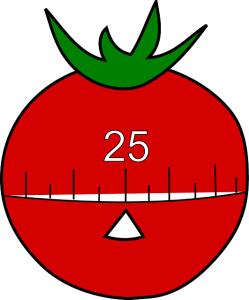 Many authors tell me they feel stuck when it comes to starting a book. That blank screen stymies them. Their desire to be an author and to get the benefits of being published is thwarted by the time to write a book.
Many authors tell me they feel stuck when it comes to starting a book. That blank screen stymies them. Their desire to be an author and to get the benefits of being published is thwarted by the time to write a book.
Writing a book can be an intimidating task. Blank screens can stare at you mockingly for long hours that turn into days, weeks, and months before you make headway in your next chapter. Before you know it, you’ve given up your dream of writing a book.
That is, of course, unless you work out a plan that has you routinely making progress on your book. In fact, writing a book can help you manage your time more wisely and encourage productivity on multiple fronts.

Dan Thurmon, NSA President, John Maxwell and Nido Qubein
How Much Time Do You Have To Write a Book
At the 2019 National Speakers Association annual meeting, I heard John Maxwell say he writes every day from 5:30 AM to 11:30 AM. John manages a global consulting business. You may be thinking, “I don’t have 6 hours a day to write. And I am not a millionaire.”
I’m not advocating you do that – but do you have an hour a day?
Consider Using the Pomodoro Technique When Writing
The Pomodoro technique is one in which you set a timer to promote short bursts of intense productivity. This method is effective because you operate in 25-minute increments. Set a timer for 25 minutes. During that period, focus on one single task. In this case, that task would be writing your book.
 Whether you’re blocking out a chapter or simply writing an outline for the next chapter(s), don’t stop for anything other than house-fire types of emergencies until the timer rings.
Whether you’re blocking out a chapter or simply writing an outline for the next chapter(s), don’t stop for anything other than house-fire types of emergencies until the timer rings.
Then you take a five-minute break before moving on to the next task, or chapter.
After every four short breaks, you take a longer break. This gives you time to clear your mind, recharge your thoughts, and refocus on the work ahead of you for the day.
This is a key component in your efforts to stay focused on writing your book and stop splitting focus by multi-tasking and otherwise spinning your wheels all day long.
Does 25 minutes sound too short for you? Then set your timer for an hour. And discipline yourself to not drift off to email, Facebook, or other distractions. During your break, walk outside, unload the dishwasher, start wash or complete some other task that takes you away from your screen.
You’ll return refreshed. And you will feel more productive during your time to write a book because you’ve cleared your head.
Prioritize Your Tasks
 You have a lot on your plate on any given day. It can be easy to get caught up in minute tasks and quickly lose time to write during your day. The longer this continues, the more time you have to forget the flow of your book or abandon your book altogether. Steady progress is a much better. It rewards and reinforces you.
You have a lot on your plate on any given day. It can be easy to get caught up in minute tasks and quickly lose time to write during your day. The longer this continues, the more time you have to forget the flow of your book or abandon your book altogether. Steady progress is a much better. It rewards and reinforces you.
Accomplish this by doing the following:
- Give up television time to write. Yes, really. Stop watching movies or playing games on the computer. Keep these as rewards from completing your work.
- Cut out unnecessary social media socializing. While some is necessary to maintain relevance with your audience, give yourself time limits for your favorite social media platforms each day.
- Get up early or stay up late to make time for writing.
- Make appointments on your calendar to make time to write your book. If something distracts you, reschedule your time.
- Set deadlines for getting specific writing done, then adhere to them. This can include deadlines for chapter outlines and chapter delivery.
- Decide how important your book is to your professional future and consider prioritizing your writing over some work functions by delegating or bringing on another team member to help take care of tasks that take you away from writing. It is easier now than ever before to outsource tasks that others can do for you.
The reward for all this time management and productivity-enhancing effort is that you will discover you can write a book. How do you know? Because you just did. Now, it’s your turn to carry out your writing plan.
If you liked this post, you’ll love 52 Writing Tips: Fast and Easy Ways to Polish Your Writing. Whether you’re a beginning writer, you want to polish your skills, or you need the determination and inspiration to finish a project, this book will help you. It covers a range of subjects from grammar explained simply, how to skillfully edit your work, essentials of blogging, and how to capture and keep a reader’s attention. 52 Writing Tips: Fast and Easy Ways to Polish Your Writing is the guide you’ve been waiting for.
The book includes several chapters on how to make the writing process easier!



 Pat Iyer is an editor, author, book coach and ghostwriter who helps individuals create books that allow their expertise to shine and advance their businesses. She has written or edited 48 books.
Pat Iyer is an editor, author, book coach and ghostwriter who helps individuals create books that allow their expertise to shine and advance their businesses. She has written or edited 48 books.